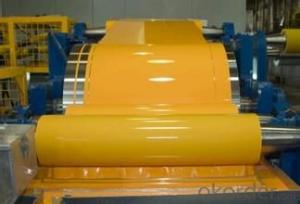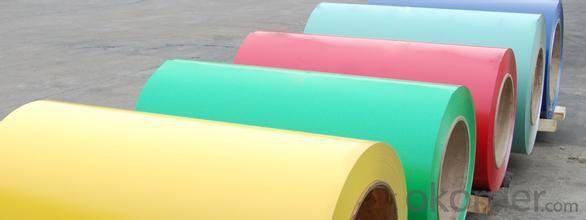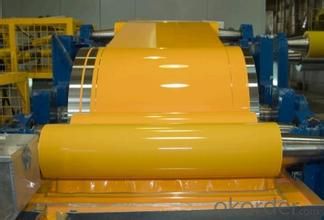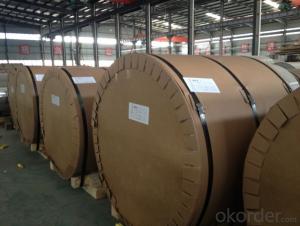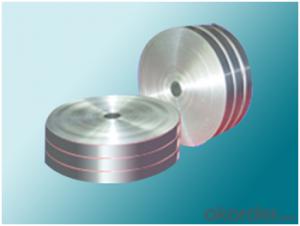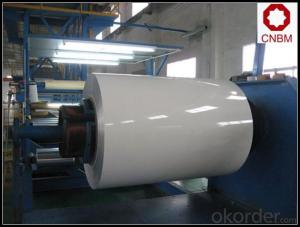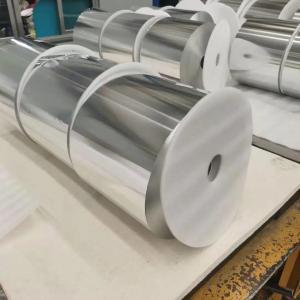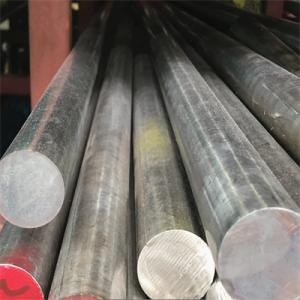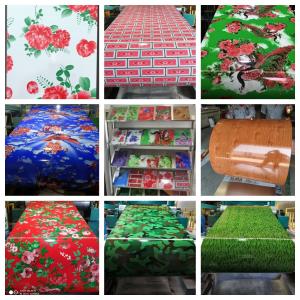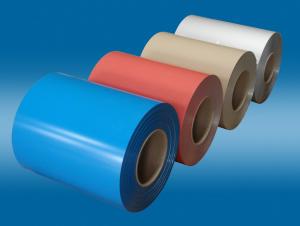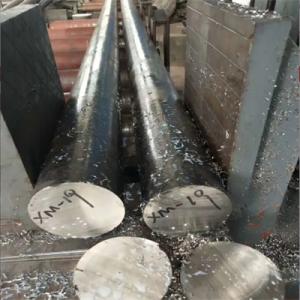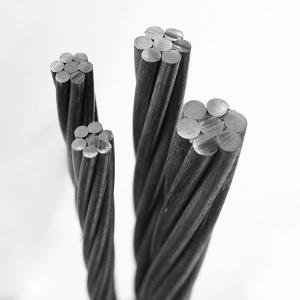Flat Rolled Aluminum Coil Illinois for Prepainted Aluminum Coil for Sandwich Panel
- Loading Port:
- China Main Port
- Payment Terms:
- TT OR LC
- Min Order Qty:
- -
- Supply Capability:
- -
OKorder Service Pledge
OKorder Financial Service
You Might Also Like
Aluminium is a relatively soft, durable, lightweight, ductileand malleablemetalwith appearance ranging from silvery to dull gray, depending on the surfaceroughness. It is nonmagnetic and does not easily ignite. A fresh film ofaluminium serves as a good reflector (approximately 92%) of visible lightand an excellent reflector (as much as 98%) of medium and far infraredradiation. The yield strength of pure aluminium is 7–11 MPa,while aluminium alloys have yield strengths ranging from200 MPa to 600 MPa. Aluminium has about one-third the densityand stiffness of steel. It is easily machined,cast, drawn and extruded.
Aluminium alloys (or aluminum alloys; see spellingdifferences) are alloysin which aluminium(Al) is the predominant metal. The typical alloying elements are copper, magnesium,manganese,silicon,tin and zinc. There are twoprincipal classifications, namely casting alloys and wrought alloys, both of which are furthersubdivided into the categories heat-treatableand non-heat-treatable. About 85% of aluminium is used for wrought products,for example rolled plate, foils and extrusions.Cast aluminium alloys yield cost-effective products due to the low meltingpoint, although they generally have lower tensile strengthsthan wrought alloys. The most important cast aluminium alloy system is Al–Si,where the high levels of silicon (4.0–13%) contribute to give good castingcharacteristics. Aluminium alloys are widely used in engineering structures andcomponents where light weight or corrosion resistance is required
Specification:
Alloy: AA1050, 1060, 1100,AA3003, 3005, 3015, 5052, 5754, 5083,8011, etc
Temper:H14/16/18/22/24/32, HO etc.
Thickness:0.2mm—100mm
Width: 100mm—2300mm (Can be slitted)
InnerDiameter: 508MM
Coil Weight:500kg-3000kg(Max.)
Application:Foil stock, Circles, Roofing, Can stock, Marine plate,Anti-slipery purpose in vehicles, packing and appliance.
Features:
1. Excellent quality of products
2. Quick delivery
3. Best service to clients
4. BV,SGS avalible
5. No buckle o waveness
6. Tension leveling
7. Certificate of Origin
8. Form A,E
Packaging Detail:
Carton ,Woodenpallet with plastic protection packing ,standard seaworthy packing or as yourrequest.
ProductionCapacity:
AnnualProduction capacity of 600,000 tons.
Products areexported to United States, Canada, U.A.E, Brazil, Mexico,Thailand, Vietnam,Nigeria etc, over 100 countries andregions all over the world.
Production Line:
CNBM aluminumproduction base is comprised of 18 aluminumannealers, 10 coil and foilmills, 4 continuous production lines, 2hot rolling production line and 3prepainted lines.
FAQ:
1. What is the form of payment?
Normally 30% TT, L/C
2. Type of quotation?
FOB, CFR, CIF
3. Port of loading?
Shanghai port
4. Delivery time?
30 day after client’s deposit
- Q:Can aluminum coils be used in high-altitude environments?
- Yes, aluminum coils can be used in high-altitude environments. Aluminum is a lightweight and corrosion-resistant material, making it suitable for various applications, including in high-altitude environments. Aluminum coils are commonly used in air conditioning systems, heat exchangers, and refrigeration units, which can function efficiently at high altitudes. Aluminum's high strength-to-weight ratio allows it to withstand the extreme conditions found at high altitudes, including low temperatures, high winds, and low atmospheric pressure. Additionally, aluminum is non-magnetic, which is advantageous in certain high-altitude applications, such as aerospace and satellite technologies. Furthermore, aluminum has excellent thermal conductivity, allowing it to efficiently transfer heat, making it ideal for use in cooling systems operating in high-altitude environments. Its corrosion resistance properties also make it durable and able to withstand the effects of moisture, which can be prevalent in such environments. Overall, aluminum coils are a reliable and suitable choice for use in high-altitude environments due to their lightweight, corrosion resistance, thermal conductivity, and strength.
- Q:Are aluminum pie pans and aluminum foil considered green products? They are most certainly recyclable. Thanks.?
- Surely that depends on how 'green' you want to be. There's the 'end user green' which just says, 'well this is recyclable so it's green', or there's the whole subject of whether we should be encouraging throw away products which rely on unsustainable minerals or rock such as the bauxite that is used to make aluminium (aluminum). And what would be the effect if we said no more aluminium, and bauxite was no longer allowed to be mined? What happens to those people who earn a living from mining it, and what do we replace it with? Green is a very complicated concept!
- Q:How do aluminum coils perform in extreme temperatures?
- Aluminum coils display remarkable performance in extreme temperatures, renowned for their ability to endure high heat without melting or deforming. This is due to aluminum's low melting point of 660°C (1220°F), which sets it apart from other metals. Consequently, aluminum coils are highly sought-after in industries such as automotive, aerospace, and HVAC, where heat resistance is paramount. In addition to excelling in extreme heat, aluminum coils also exhibit exceptional performance in freezing temperatures. This is attributed to aluminum's exceptional thermal conductivity, enabling it to efficiently transfer heat. As a result, even in frigid conditions, aluminum coils can promptly warm up and maintain a consistent temperature. Furthermore, aluminum's resistance to corrosion renders it an ideal choice for outdoor applications exposed to harsh weather conditions. Unlike other materials, aluminum does not rust or deteriorate when exposed to extreme temperatures, ensuring its durability and reliability. In conclusion, aluminum coils are specifically designed to withstand extreme temperatures, making them the preferred option for industries that prioritize heat resistance and long-lasting performance.
- Q:Can aluminum coils be used for roofing?
- Certainly, roofing can be done using aluminum coils. Aluminum is widely regarded as a top preference for roofing materials because of its sturdy composition, lightweight properties, and exceptional resistance to corrosion. In a wide range of roofing applications, including residential, commercial, and industrial structures, aluminum roofing coils are frequently employed. They offer exceptional safeguarding against severe weather conditions like intense rainfall, snowfall, and powerful winds. Furthermore, aluminum coils possess energy-efficient attributes as they possess the ability to reflect solar heat, thereby aiding in preserving a cool indoor environment and reducing energy expenditures. All in all, aluminum coils present a dependable and enduring roofing solution.
- Q:What are the different types of alloys used for aluminum coils?
- Aluminum coils are commonly made using several different types of alloys. The most frequently used alloy for aluminum coils is 3003, which is known for its excellent corrosion resistance and moderate strength. It finds its application in roofing and siding where high strength is not a requirement. 5052 is another alloy that is commonly used for aluminum coils. This alloy possesses good weldability and formability, making it suitable for a wide range of uses. In the automotive industry, it is often employed for body panels and fuel tanks. 6061 is a popular choice for aluminum coils due to its outstanding strength. It is frequently used in structural applications, such as aircraft parts in the aerospace industry and structural components in the construction industry. Additionally, other alloys like 1100, 5005, and 8011 are also used for aluminum coils. Each of these alloys has distinct properties and characteristics that make them suitable for different applications. For instance, 1100 is known for its high electrical conductivity and is commonly used in electrical applications. On the other hand, 8011 is frequently utilized for packaging and food containers due to its excellent corrosion resistance. In conclusion, the various alloys used for aluminum coils include 3003, 5052, 6061, 1100, 5005, and 8011. These alloys possess different properties and characteristics, making them suitable for a wide range of applications across industries like automotive, aerospace, construction, and packaging.
- Q:How are aluminum coils processed for specific mechanical properties?
- Aluminum coils are processed to achieve specific mechanical properties through a series of manufacturing techniques. These techniques are aimed at altering the structure and composition of the aluminum alloy, ultimately enhancing its desired properties such as strength, hardness, ductility, and corrosion resistance. One common method used to process aluminum coils is heat treatment. This involves heating the coils to a specific temperature and then cooling them rapidly or slowly to achieve the desired properties. For instance, annealing is a heat treatment process that involves heating the coils to a high temperature and then slowly cooling them to enhance their softness and ductility. On the other hand, precipitation hardening involves a combination of solution heat treatment and aging to increase the strength and hardness of the aluminum coils. Another method used to process aluminum coils is cold working or cold rolling. This involves passing the coils through a series of rollers at room temperature to reduce their thickness and improve their mechanical properties. Cold working not only increases the strength and hardness of the coils but can also enhance their surface finish and dimensional accuracy. Furthermore, alloying elements can be added to the aluminum alloy during the casting process to achieve specific mechanical properties. For example, adding elements like copper, magnesium, or zinc can enhance the strength and corrosion resistance of the aluminum coils. In summary, aluminum coils are processed for specific mechanical properties through techniques such as heat treatment, cold working, and alloying. These techniques help modify the structure and composition of the aluminum alloy, resulting in enhanced strength, hardness, ductility, and corrosion resistance.
- Q:How to measure the thickness of aluminum coil at real time? In what areas can the sensor be used?
- It can be used in non-contact measurement of displacement, three-dimensional size, thickness, object deformation and vibration.
- Q:Are there any limitations to the widths of aluminum coils?
- The widths of aluminum coils are subject to certain limitations. Various factors, such as the manufacturing process, equipment capabilities, and industry standards, determine the width of these coils. One limitation arises from the maximum width that the manufacturing equipment can handle. Coil processing machines have specific width capacities, typically ranging from a few inches to several feet. If an aluminum coil exceeds the machine's maximum width capacity, it may not be feasible to process. Another limitation relates to transportation and handling. Aluminum coils that are too wide may not fit into standard shipping containers or may be challenging to maneuver during transportation. Moreover, wide coils may necessitate specialized handling equipment or additional support, leading to increased costs and logistical difficulties. Industry standards and application requirements also influence the limitations on aluminum coil widths. Different industries and applications have specific width specifications for their products. For instance, the construction industry may have particular width requirements for roofing or cladding materials, while the automotive industry may have different demands for body panels. Manufacturers must take these standards and customer needs into account when determining the maximum and minimum widths of aluminum coils. To summarize, while aluminum coils can be produced in various widths, there are limitations due to manufacturing equipment capabilities, transportation constraints, and industry standards. These limitations must be considered to ensure the efficient production, handling, and utilization of aluminum coils in different applications.
- Q:i have about 100lbs of aluminum blocks and scrap.
- There is a BIG difference between the recycling refund on aluminum containers and the scrap value of other aluminum. The recycling refund is based upon deposits on beverage containers. It used to be that scrap dealers mentioned the amount of the deposit refund PLUS the scrap value of the cans. Now many of these slimy scuzz butts only REFUND the deposit and do not pay the scrap value! They keep that scrap payment for themselves as a windfall profit! The scrap value of aluminum doors, aluminum eating utensils, and so on is a set price. You will get only scrap market value for those. It will be handled separately. Try, as I did, putting aluminum foil in the drink cans and see what happens! I was doing it only because the aluminum foil was aluminum and would go to the same place. But, they have a count scanner that assesses the number and weight of the aluminum cans you bring in (the one I went to had it mounted above the conveyer belt where the shredder accepts the cans) and they can compare the weight of all of the cans to the count or basket capacity. Also, if they find shredded aluminum foil in the bin, they can analyze approximately who brought it in. They are also wise about putting water in the cans so they are heavier, but I never did that.
- Q:How can aluminium ingots be processed into aluminium coils (aluminium sheets)?
- This depends on what kind of ingot, and if it is small, it needs to be melted into a furnace, cast into a large plate, and then rolled on a mill
1. Manufacturer Overview |
|
|---|---|
| Location | |
| Year Established | |
| Annual Output Value | |
| Main Markets | |
| Company Certifications | |
2. Manufacturer Certificates |
|
|---|---|
| a) Certification Name | |
| Range | |
| Reference | |
| Validity Period | |
3. Manufacturer Capability |
|
|---|---|
| a)Trade Capacity | |
| Nearest Port | |
| Export Percentage | |
| No.of Employees in Trade Department | |
| Language Spoken: | |
| b)Factory Information | |
| Factory Size: | |
| No. of Production Lines | |
| Contract Manufacturing | |
| Product Price Range | |
Send your message to us
Flat Rolled Aluminum Coil Illinois for Prepainted Aluminum Coil for Sandwich Panel
- Loading Port:
- China Main Port
- Payment Terms:
- TT OR LC
- Min Order Qty:
- -
- Supply Capability:
- -
Offcanvas right
OKorder Service Pledge
OKorder Financial Service
Similar products
New products
Hot products
Hot Searches
Related keywords

